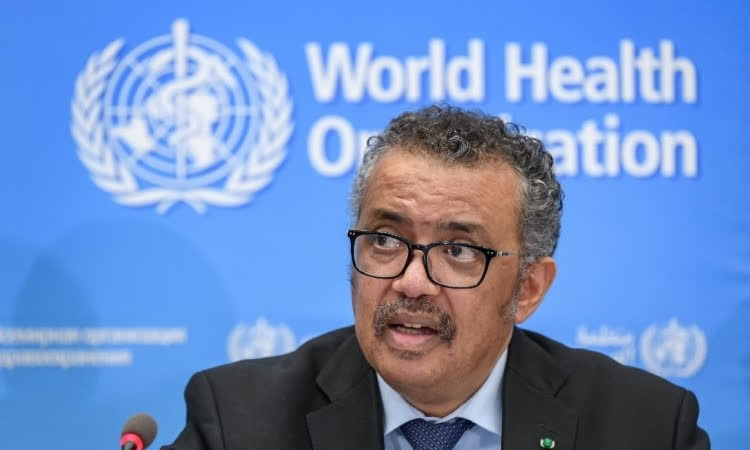Although it is not known if such a virus currently exists, experts hope that proactive action plans can be put in place to counteract and prepare the healthcare system in the event that Disease X emerges as a pandemic. An expert told CBS News that this possibility may occur sooner than we think.

Tedros Adhanom Ghebreyesus, Director-General of WHO
Dr. Amesh Adalja of the Johns Hopkins Center for Health Security states, “There are virus strains with high fatality rates that can efficiently spread from person to person.”
What is Disease X?
In 2022, the WHO assembled 300 scientists to examine 25 virus and bacterial families to identify disease agents that they believe have the potential to cause devastation and require further research. Included in that list is Disease X, which this organization first recognized in 2018.
The WHO assess the concern for Disease X as “reflecting an understanding that a serious international epidemic could be caused by a pathogen (unknown).” WHO Director-General Tedros Adhanom Ghebreyesus noted that Covid-19 could be the “first Disease X.” Scientists are actively learning from that experience.
According to Dr. Adalja, Disease X could be caused by a respiratory virus that has spread among animals and does not yet have the ability to transmit to humans. “The infected animal can be a bat-like Covid-19, bird species like avian flu, or other animal species such as pigs,” the doctor said. When humans and animals come into contact, the viral species can spread.
Expert calculations
According to the WHO, failure to prepare could cause a disease of that scale to cause even greater damage than what we have experienced with Covid-19, a disease that has claimed the lives of over 7 million people.
Dr. Adalja also cites the 1918 flu pandemic that killed around 50 million people worldwide. “If we respond poorly to something like Covid-19, you can imagine how bad things will get with an event on the scale of the 1918 flu pandemic.”
That is why experts worldwide are researching a robust and effective plan to prepare for the worst-case scenario. Mr. Ghebreyesus believes that early warning systems and health infrastructure plans can be helpful in a future scenario.
Dr. Adalja highlights another important lesson from the Covid-19 pandemic, the importance of transparency.
Mr. Ghebreyesus shares that the WHO is collaborating with other global organizations and has put forth initiatives to prepare for the next pandemic. These efforts include the pandemic fund to assist resource-poor countries, mRNA vaccine transfer centers to ensure vaccine equity for low-income countries, and disease information centers to improve collaboration monitoring between nations.






































